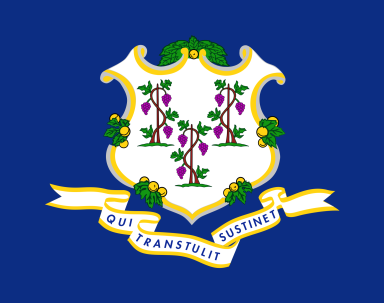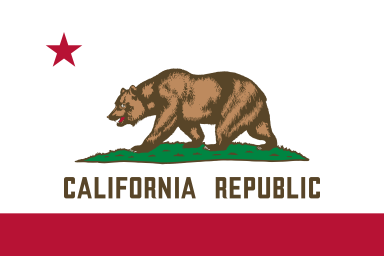Many enjoy riding motorcycles because these vehicles can be more dynamic than four-wheeled motor vehicles and, thus, feel more freeing. However, these same conveniences make motorcycles more prone to fatal accidents.
According to the US Department of Transportation’s Fatality Analysis Reporting System, 10% (29 out of 280) of 2021 motor vehicle crash deaths in West Virginia involved motorcyclists. Despite the slight decrease in the state's motorcycle fatality rate from 11% in 2019, accidents involving motorcycles continue to be overrepresented in traffic incidents overall.
Riders should be cautious on the road at all times. Because motorcycles are more vulnerable compared to other types of vehicles, motorcycle drivers have greater chances of getting involved in an accident. Thus, if you are a motorcyclist, you should arm yourself with protective equipment, drive safely, and know West Virginia motorcycle accident laws.
Fortunately, this article can help you with the latter. It discusses some of the most important policies regarding motorcycle use in the Mountain State, especially those applied during accidents.
West Virginia Motorcycle Licensing Process
As with other states, West Virginia requires its citizens to obtain a license to legally ride a motorcycle across the state. However, a classic driver's license is not enough—applicants should secure a Class F license (specifically for motorcycles) or have a motorcycle endorsement.
If you're 18 years old or older, you are required to undergo this two-step process:
1. Obtain an Instruction Permit
You must get an instruction permit, specifically a regular Class E Instruction Permit, before getting a license in West Virginia. You are required to pass a knowledge test and vision screening to earn it.
The knowledge test encompasses information from the Motorcycle Driver/Operator Handbook, which can be downloaded from the state's Department of Motor Vehicles.
Once you have your permit, be aware of these guidelines:
You can drive only during daylight hours.
You cannot ride with a passenger.
The permit is valid for 180 days only and is non-renewable.
2. Pass a Skills Test
Although the learner's permit is valid for 180 days, you can take the skills test seven days after securing the permit. Similar to the knowledge test, an appointment must be made for the skills test. Once you've passed this, you will have earned your motorcycle license or endorsement.
Alternative: Complete a Motorcycle Safety Course
If you want to avoid taking the skills test, your option is to enroll in and complete a Motorcycle Safety Course offered by the West Virginia DMV. There are two kinds of courses: basic and experienced.
Both courses cost additional fees and require you to attend classes totaling 17 hours. Failing to attend these classes or getting dismissed from the program for other reasons won't make you eligible for a refund. So be sure you are ready to commit when you enroll in these courses.
For Applicants Below 18: Complete a Level II Graduated Driver's Licensing
If you are below 18, you cannot get a Class E instruction permit immediately. Instead, you must undergo the Graduated Driver's Licensing process. It has three levels, although you are required to complete only Levels I and II to obtain a motorcycle instruction permit.
Level I Instructional Permit
To complete Level I of the GDL, you must be 15 years old or older. You must also have passed the knowledge test. In addition, a parent or legal guardian is required to express consent by signing your application.
The permit is only valid for 30 days after your 18th birthday. It is also subject to these restrictions:
You can only drive between 5:00 a.m. to 10:00 p.m.
You cannot be drinking or drunk while driving.
You must not be using gadgets like cell phones while driving.
Level II Intermediate License
Once you're 16 years old and have held your Level I Instructional Permit for six months, you can obtain your Level II Intermediate License, which is the prerequisite to a motorcycle instruction permit.
These conditions must also be met to apply for a Level II intermediate license:
Free of violations for six months
Completed a 50-hour certification form (with 10 hours of night driving practice)
Unlike Level I, a Level II GDL allows you to drive between 5:00 a.m. and 10:00 p.m. without a supervising adult.
Once you’re 17 and have had your Level II GDL for a year, you can apply for a Level III license. This is equivalent to the Class E license, which is the instruction permit prerequisite to a motorcycle-only license or endorsement.
West Virginia Laws on Passengers, Helmets, and Other Protective Devices
West Virginia is one of the 18 states in the USA that require helmets while riding a motorcycle. This legislation may have helped keep the state's motorcycle fatality rate relatively low, as helmets have been studied to be 37% effective in protecting motorcycle drivers and 41% effective in protecting their passengers.
Thus, it is important to take note of policies regarding the use of helmets and other motorcycle devices. These regulations also apply to passengers.
Helmet Requirements
Motorcycle passengers and drivers have to wear helmets in West Virginia. These helmets must comply with any of the following standards:
American National Standards Institute Standard, Z 90.1
United States Department of Transportation Federal Motor Vehicle Safety Standard No. 218
Snell Safety Standards for Protective Headgear for Vehicle Users
Compliant helmets have stickers or labels from these agencies. Motorcyclists must ensure the helmet is not cracked, damaged, or fitted loosely. The helmet must also be strapped on when worn.
Eye Protection Requirements
Eye protection devices are required for both drivers and passengers. Any of the following can be worn to protect a motorcyclist’s eyes:
Eyeglasses
Eye goggles
Face shield
A windshield or windscreen is not considered a substitute for an eye protection device. But if you do install one, make sure it is shatterproof and compliant with DOT standards.
Other Motorcycle Devices
Here are other policies on motorcycle parts or equipment that have to be followed for everyone’s safety:
Handlebars or grips must not be more than 15 inches higher than the driver's seat.
Passengers must have a seat and footrest allocated for them. Otherwise, the driver cannot carry another person on their motorcycle.
If the motorcycle has a sidecar, its passengers should wear safety belts.
The motorcycle must have rearview mirrors.
Roadway Laws in West Virginia
You should know how to maneuver and drive down roads in West Virginia legally. If you cross, share, or split lanes illegally and cause an accident, you can be held responsible, even if you aren't aware that you broke the law.
Stick to Your Lane and Follow Traffic Signs
West Virginia's Legislation 17C-7-9 states that vehicles, including motorcycles, should be driven as nearly as practicable in a single lane. Moving away from that lane is discouraged until the rider can switch safely.
Moreover, if the road is divided into three lanes, the rider should only drive in the center lane if they are heading in that direction. For instance, if the lane is reserved for a left turn, the driver should only use this lane when making a left turn.
Finally, signs that establish the direction of a lane should always be followed. Disregarding these signs and other roadway regulations could risk safety and get the driver fined. Moreover, if the rider ignores traffic signs and figures in an accident, it could put them in a disadvantageous legal situation.
Two Motorcycles Can Share a Lane
If the lane is wide enough, two motorcycles can share it. However, utmost care and attention must be employed when switching lanes in order to avoid accidents. For instance, you must ensure that signals are raised if you wish to change lanes.
Moreover, even if two motorcycles can share the lane, a motorcycle and another motor vehicle (e.g., a car) cannot do the same. Thus, avoid driving side by side with a larger vehicle—not only for legal purposes but also for your safety.
Lane Splitting Is Not Allowed in West Virginia
Driving a motorcycle between rows of vehicles is known as lane splitting. Like in several other states, this practice is prohibited in West Virginia. It is not explicitly banned; however, no legislation allows it, hence the prohibition.
Some states, like California, have allowed lane splitting, but they sternly warn their citizens of its dangers. In West Virginia, lane splitting can be grounds for a rider to be held liable if an accident occurs.
Speed Restrictions in West Virginia
Speeding poses a serious threat to motorcycle riders, accounting for as much as 34% of fatal motorcycle crashes in 2020. Thus, abiding by speed limits is crucial for road safety. Here are some of the basic restrictions imposed in West Virginia:
15 miles per hour in school zones during recess, opening, and closing
25 miles per hour in a business or residential district
55 miles per hour on highways
Local authorities can alter these basic limits. Thus, if legitimate signs in a zone or area indicate a speed limit different from the ones above, these signs should be strictly followed.
Moreover, racing is strictly prohibited in West Virginia, especially on public streets and highways. If you insist on racing with motorcycles, not only do you risk fines, imprisonment, or suspension of your license, but you also—ultimately—put yourself and others in a dangerous position.
Avoid Driving Too Slowly
While speed restrictions often limit how fast vehicles can go, some indicate how slow a motorcycle can be. Vehicles going too slow can impede traffic; thus, setting a minimum speed limit in certain areas or zones is essential to maintaining the traffic flow.
Rules on Reporting Crashes in West Virginia
When involved in a crash, a rider should stop their vehicle and stay on the scene to discuss and exchange information with the other driver(s) and authorities. Some of the information they should provide is their name, contact details, vehicle information, proof of security and financial responsibility, and insurance details.
If there are injured drivers or passengers, a motorcyclist must assist to the best of their ability. This may involve seeking medical aid or contacting emergency response personnel. On the other hand, in the event of a crash against an unattended vehicle or property, the owner or person in charge of the property should be notified.
A report should also be made regarding the accident. To initiate the process, inform the local police, county sheriff, or the West Virginia State Police of the crash. Then, the police will conduct an investigation, make a crash report, and submit it to the concerned authorities.
If you fail to stop and stay, exchange information, assist, or inform authorities of the crash, you will have to pay a fine and even incur jail time, as per the West Virginia Code.
West Virginia Motorcycle Insurance Requirements
All motor vehicles in West Virginia have to be insured. This insurance coverage must meet the DMV's minimum standards:
$25,000 for one crash and one injury
$50,000 for one crash and two or more injuries
$25,000 for property damage
West Virginians are also encouraged to get uninsured, underinsured, and hit-and-run accident insurance—optional provisions that increase drivers’ financial protections on top of the minimum requirements.
If you are involved in a crash and the other driver does not have insurance, carries insurance that does not meet the minimum standards, or has fled the scene after the crash, then you can use these optional coverage policies for your bills and expenses.
You must carry proof of insurance when riding your motorcycle. If you fail to get insurance, your license, vehicle registration, and driving privileges could be suspended. You may also incur fines and jail time.
West Virginia Is a Fault State for Insurance Claims
West Virginia is a fault state. Thus, if a motorcycle rider is involved in an accident caused by another driver, the latter will be responsible for the expenses relating to the crash.
Thus, drivers in West Virginia are strictly required to have insurance. Should they get into an accident, at least their insurance can cover some, if not all, of the expenses that the other party has a right to seek from them.
How Much Can Someone Sue for a Motorcycle Accident in West Virginia?
A motorcyclist can sue for these damages when caught in an accident:
Economic losses: These refer to quantifiable damages or expenses, such as medical bills, property damage, or lost wages.
Non-economic losses: These refer to intangible damages or expenses, like pain and suffering.
West Virginia law does not limit the economic losses one can sue for in accidents. A plaintiff can collect compensation as long as they can verify or prove that they are entitled to it. However, legislation states that one cannot sue for more than $500,000 in non-economic damages.
West Virginia Is a Modified Comparative System State for Motorcycle Accident Lawsuits
West Virginia follows a modified comparative system when it comes to motorcycle accidents and other personal injury lawsuits.
In this system, the recovery of damages is determined according to the percentage of fault. Hence, if one party is 100% at fault for the accident, they will shoulder the compensation for all the costs. But if it is proven that the plaintiff is 25% at fault, the plaintiff will be paid only 75% of the damages they’re seeking.
Moreover, in order to receive compensation, a party should not be more than 50% at fault for the accident. Otherwise, they will be barred from receiving any payments from the lawsuit.
West Virginia Statute of Limitations for Motorcycle Accidents
The West Virginia Code states that you have until two years after the motorcycle accident to file a personal injury lawsuit. Thus, if you are still recovering from the accident, you have ample time to prioritize your health and recovery.
Even so, it's best to seek legal aid immediately. A legal team can help you collect and document evidence while you recover to strengthen your case when you sue.
Make sure to file your lawsuit within two years. If you miss the deadline, it will be unlikely that your case will be heard, and you won’t be able to recover your expenses and damages.
Legal Resources for West Virginia Motorcycle Accident Victims
West Virginia Division of Motor Vehicles
The West Virginia DMV is in charge of licensing and vehicle registration in the state. Valuable resources, like the motorcycle operator's handbook, are available through its site. Moreover, it aids drivers in verifying their insurance providers to ensure that the package they purchase is reliable and legitimate.
West Virginia State Bar
The West Virginia State Bar is affiliated with the Supreme Court of Appeals of West Virginia and links to thousands of licensed attorneys in the state. The State Bar helps West Virginia citizens by providing various programs and services available to the public, such as West Virginia Free Legal Answers. This service allows users to post questions and receive answers from volunteer attorneys.
West Virginia Lawyer Referral Service
The West Virginia Lawyer Referral Service is another program from the West Virginia State Bar that serves as one of the fastest ways to find an attorney for your case. It allows you to schedule a consultation with a legal professional so you can assess if their services and fees are within your needs and capacities. Getting a referral does not compel you to hire them right away.
Step into the world of Expertise.com, your go-to hub for credible insights. We don't take accuracy lightly around here. Our squad of expert reviewers, each a maestro in their field, has given the green light to every single article you'll find. From rigorous fact-checking to meticulous evaluations of service providers, we've got it all covered. So feel free to dive in and explore. The information you'll uncover has been stamped with the seal of approval by our top-notch experts.





